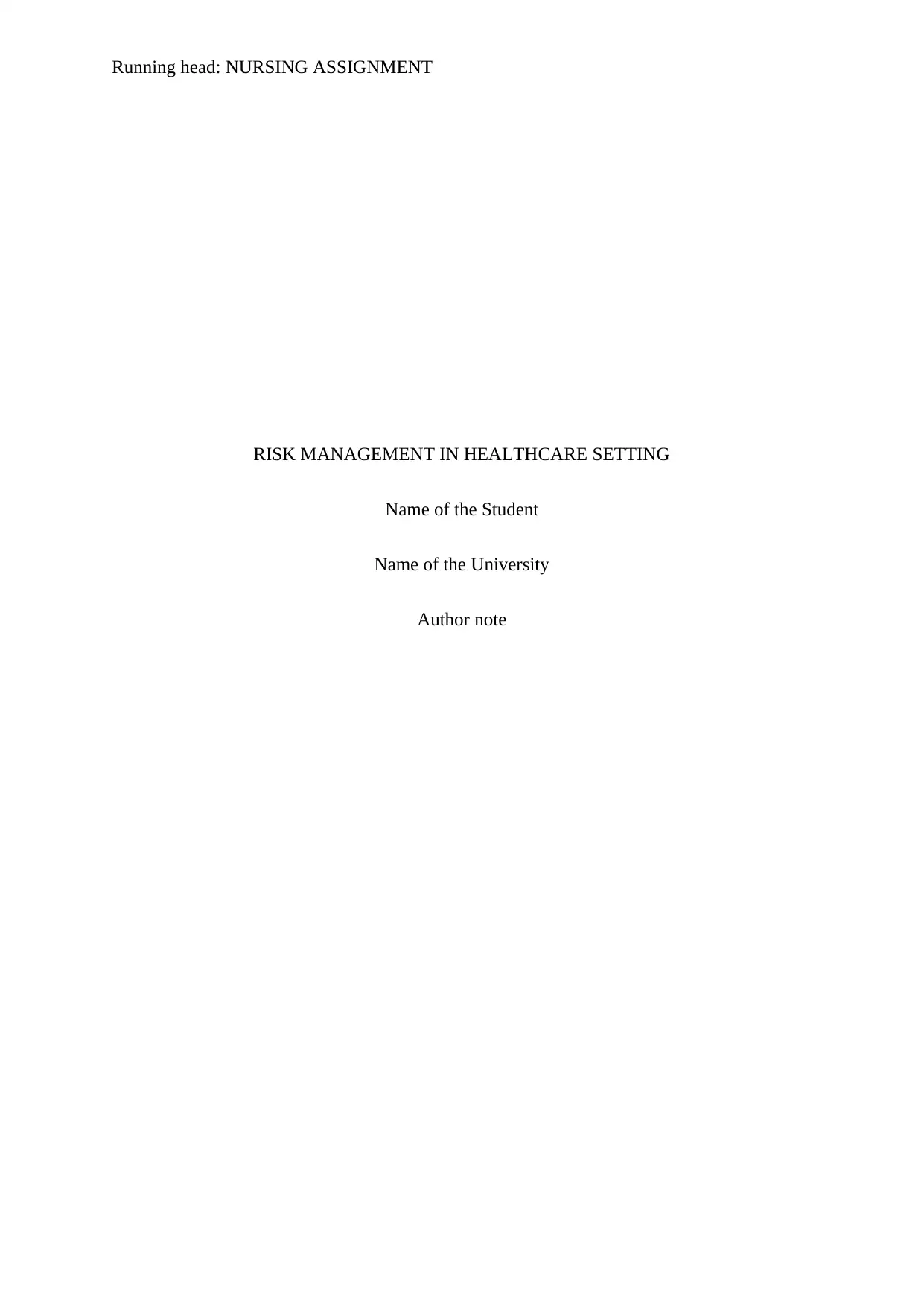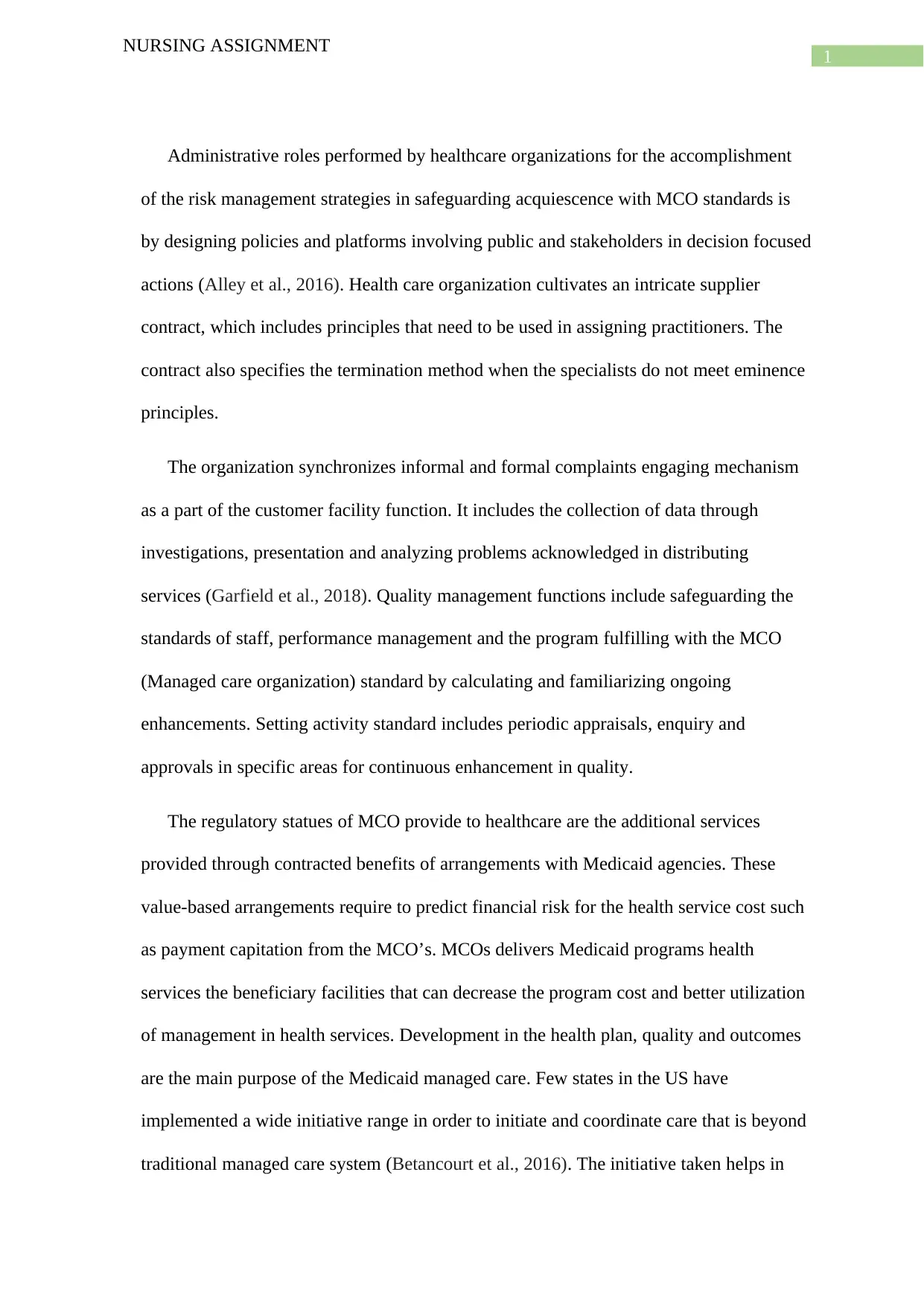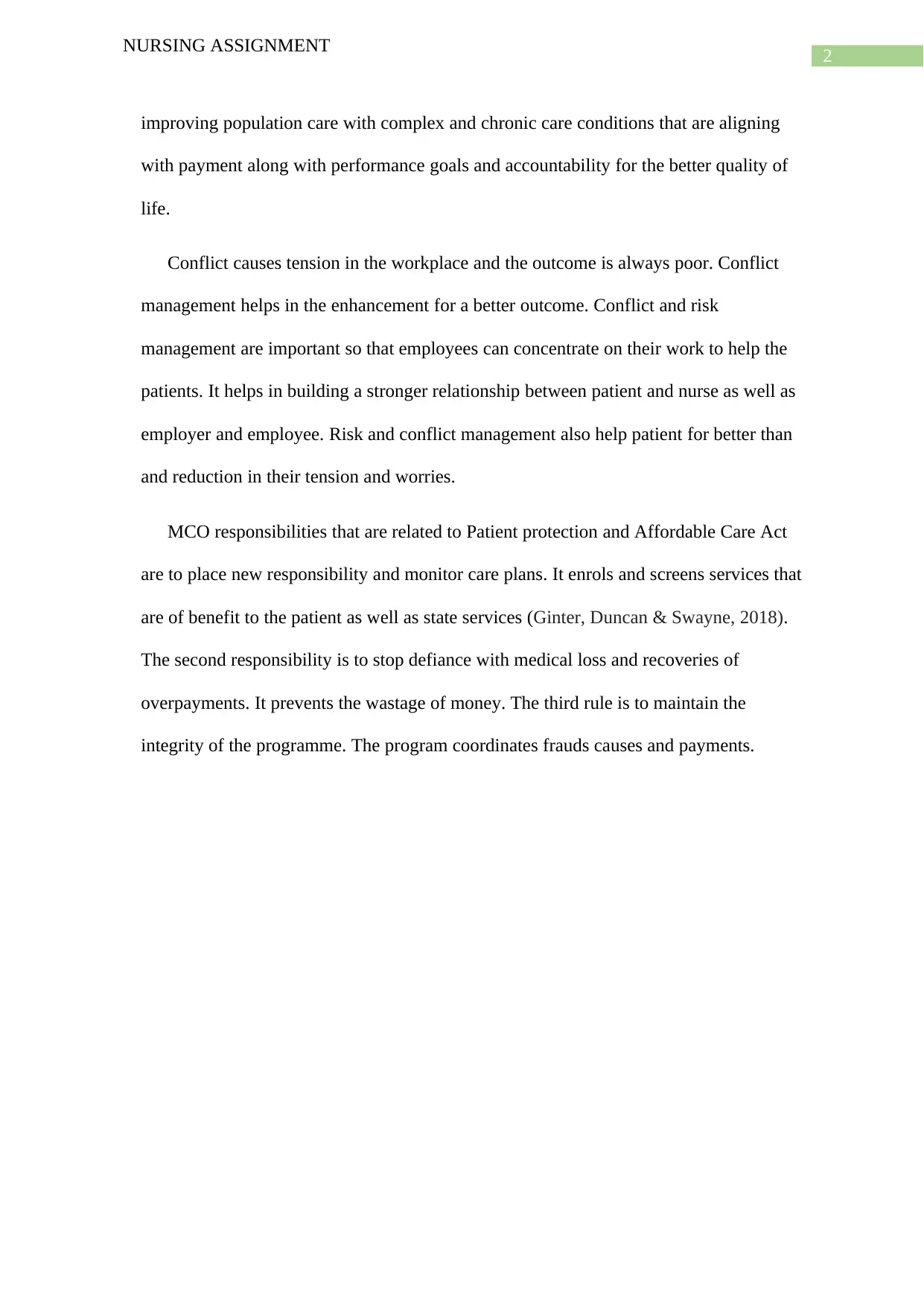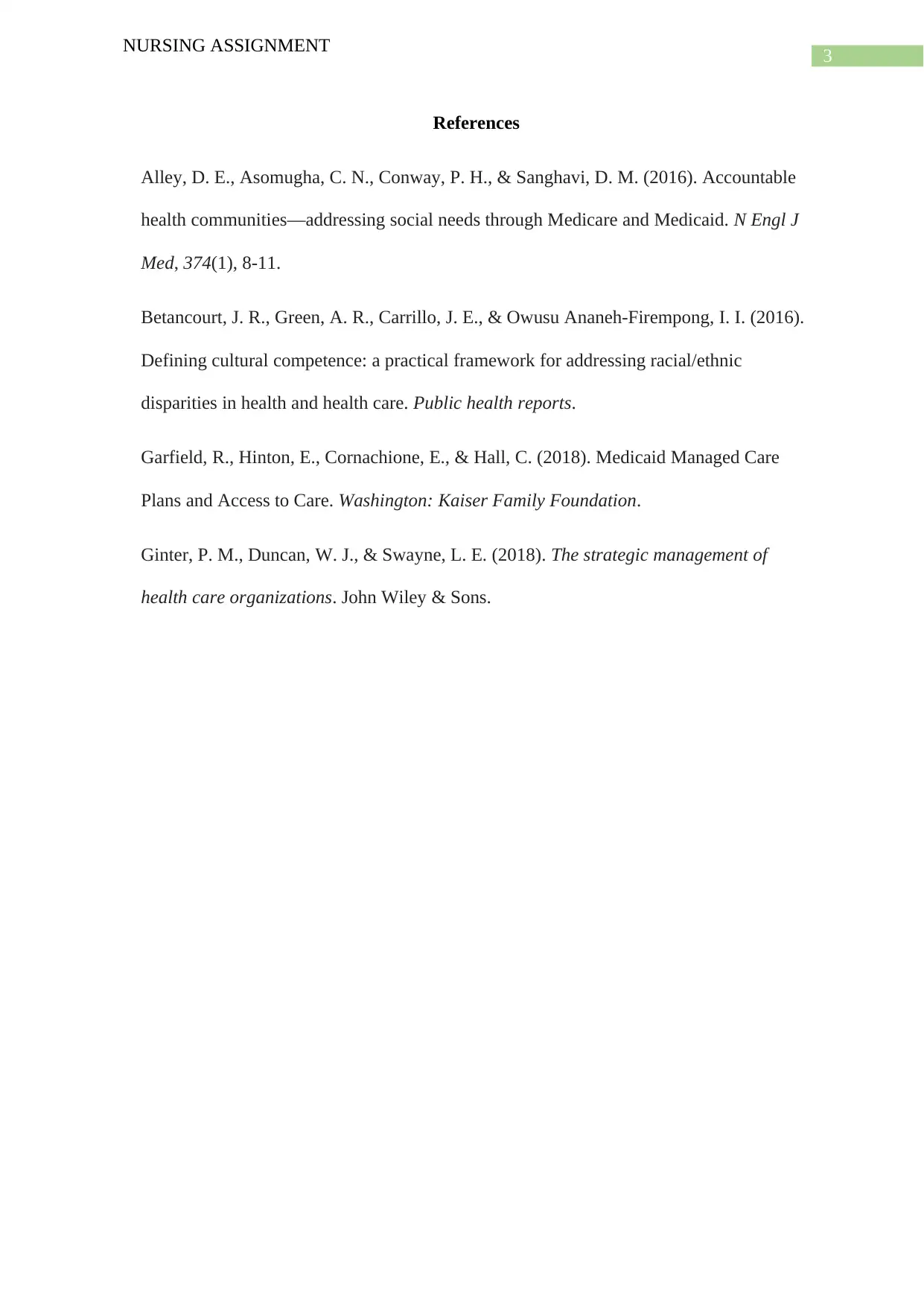Nursing Assignment: Reflective Analysis of Risk Management and MCOs
VerifiedAdded on 2022/08/09
|4
|683
|367
Report
AI Summary
This nursing assignment delves into the critical aspects of risk management within the healthcare landscape, with a specific focus on the influence and responsibilities of Managed Care Organizations (MCOs). The report examines the administrative roles healthcare organizations undertake to execute risk management policies and ensure compliance with MCO standards, highlighting the significance of supplier contracts, complaint mechanisms, and quality management functions. It further explores the value derived from MCO regulatory statutes, particularly concerning Medicaid programs and value-based arrangements. The assignment also analyzes the impact of conflict and risk management strategies on both patients and healthcare professionals, emphasizing the importance of fostering strong relationships and reducing patient anxiety. Finally, it outlines the MCO responsibilities related to the Patient Protection and Affordable Care Act (ACA) and the Center for Medicare and Medicaid Services (CMS), specifically concerning fraud, waste, and abuse laws, and the maintenance of program integrity.
1 out of 4











![[object Object]](/_next/static/media/star-bottom.7253800d.svg)